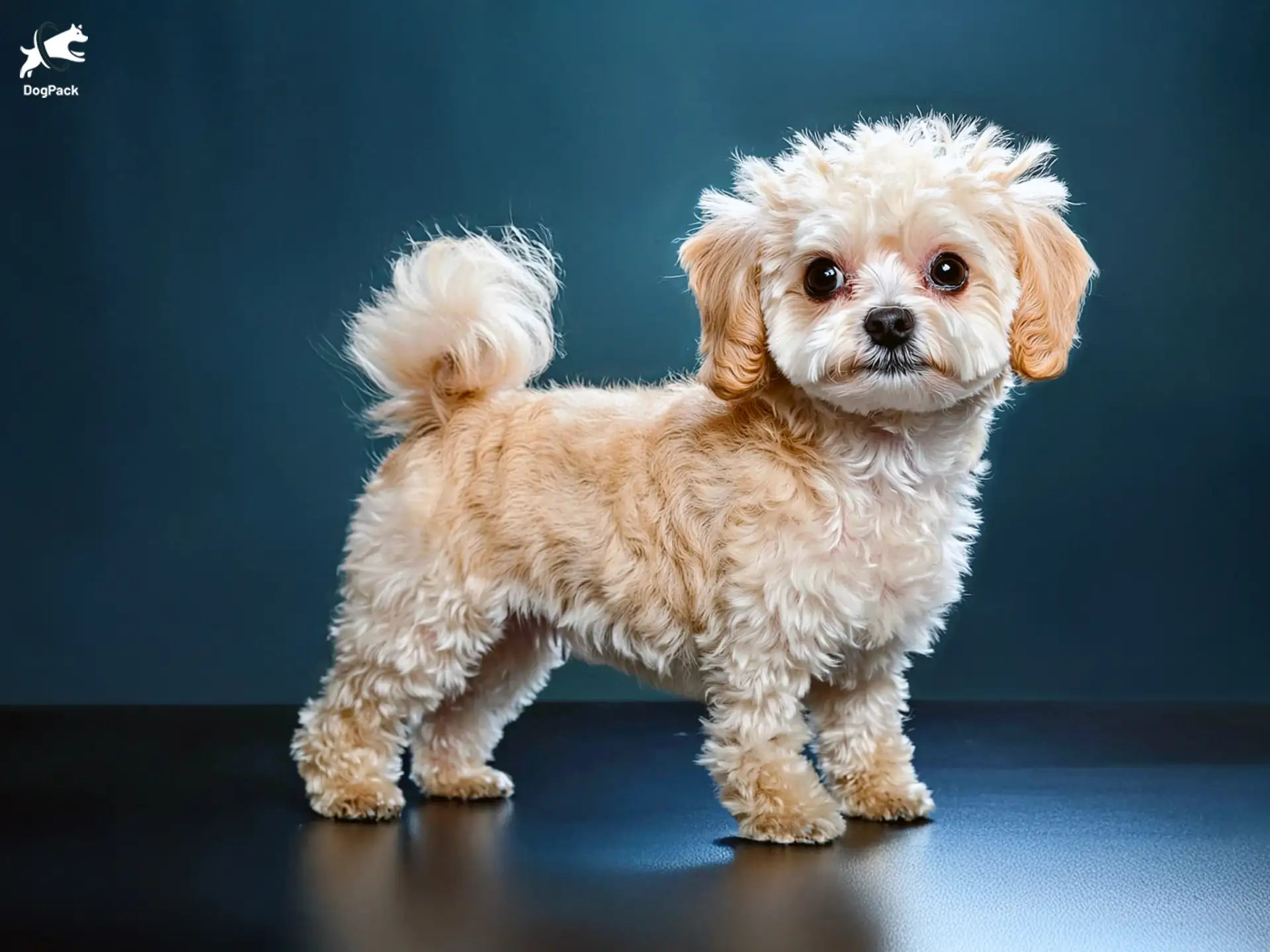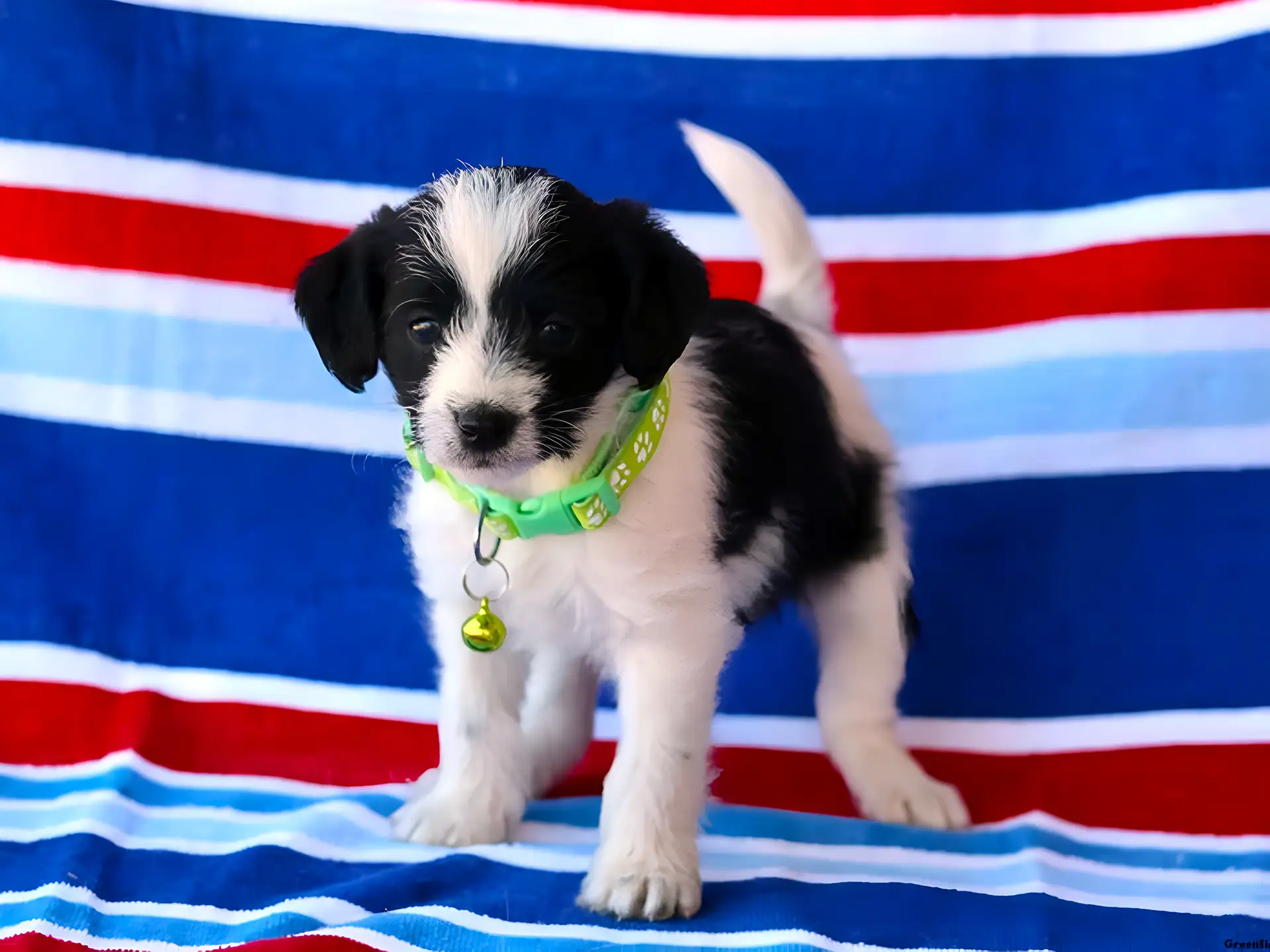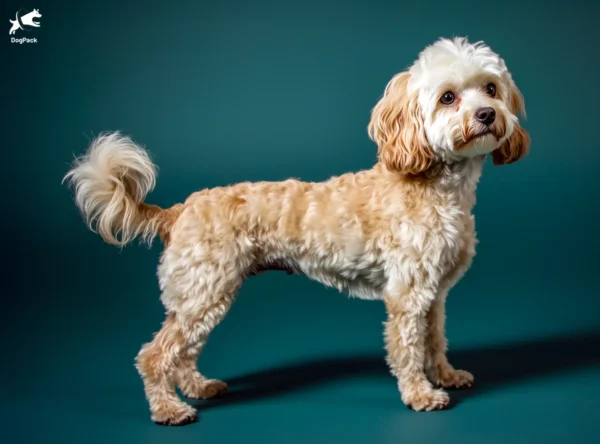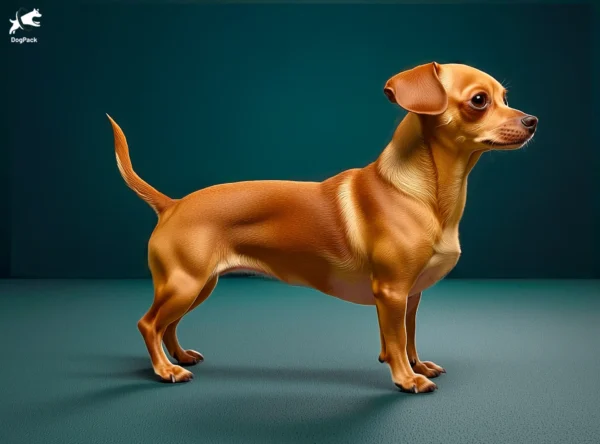Chi-Poo Dog Breed Info & Overview
Mix a dash of Chihuahua charm with a sprinkle of Poodle intelligence, and you’ve got yourself a Chi-Poo! This pint-sized hybrid is known for its lively personality and affectionate nature. Perfect for those seeking a small companion with a big heart, the Chi-Poo brings the best of both breeds into one delightful package.
Characteristics
Pictures
Breed History
The Chi-Poo is a relatively new addition to the world of designer dogs, emerging in the late 20th century when breeders began experimenting with crossbreeding Chihuahuas and Poodles. This hybrid was created to combine the Poodle’s intelligence and hypoallergenic coat with the Chihuahua’s spunky personality and compact size.
While the exact origins are unclear, the Chi-Poo likely originated in the United States, following the trend of creating small, low-shedding companion dogs suited for urban living. The breed quickly gained popularity among dog enthusiasts looking for a pet that was both intelligent and adaptable to various living situations.
The name “Chi-Poo” is a blend of its parent breeds’ names, much like the dog itself is a blend of their best traits. Though not recognized by major kennel clubs, the Chi-Poo has found its way into the hearts of many, thanks to its charming demeanor and versatile nature.
Temperament, Personality
Chi-Poos are known for their lively and affectionate personalities. They often inherit the Poodle’s intelligence and the Chihuahua’s boldness, resulting in a dog that’s both clever and spirited. These hybrids love to be the center of attention and thrive on human companionship, making them excellent lap dogs.
When it comes to children, Chi-Poos can be great companions if socialized early. Due to their small size, they are better suited to families with older children who understand how to handle them gently. They may be wary of strangers at first but usually warm up quickly once they feel comfortable.
Chi-Poos can get along well with other pets, especially if introduced gradually. Their adaptable nature means they can fit into various household dynamics. However, their Chihuahua side might make them a bit territorial, so proper training and socialization are key to fostering harmonious relationships with other animals.
Physical Characteristics
Chi-Poos are small dogs, typically weighing between 5 to 20 pounds and standing 5 to 15 inches tall. Their appearance can vary widely, even within the same litter, depending on which parent breed they take after more. Some may have the curly coat of a Poodle, while others sport the short, smooth fur of a Chihuahua.
Coat colors are diverse, ranging from black, white, brown, cream, to multi-colored patterns. The texture can be straight, wavy, or curly, influencing their grooming needs. One of the most appealing aspects of the Chi-Poo is its expressive face, often featuring large, dark eyes and perky or floppy ears.
Their bodies are compact and well-proportioned, making them agile and quick on their feet. The Chi-Poo’s tail can be curled like a Poodle’s or straight like a Chihuahua’s. Overall, their unique blend of physical traits makes each Chi-Poo distinct, adding to their charm and appeal.
Health Issues
Chi-Poos are generally healthy dogs but can be prone to certain health issues inherited from their parent breeds. Common concerns include dental problems, such as tooth decay and gum disease, due to their small mouths. Regular dental care, including brushing and professional cleanings, is essential to maintain their oral health. According to the AmericanVeterinary Dental College, periodontal disease is common in small breeds like the Chi-Poo.
They may also be susceptible to patellar luxation, a condition where the kneecap dislocates. Monitoring their activity levels and avoiding excessive jumping can help prevent strain on their joints. Additionally, eye issues like progressive retinal atrophy can occur, so routine veterinary eye exams are recommended.
Chi-Poos might inherit hypoglycemia from the Chihuahua side, leading to low blood sugar levels. Feeding them small, frequent meals can help manage this condition. Overall, regular veterinary check-ups and a balanced diet play crucial roles in keeping your Chi-Poo healthy and happy.
Grooming Needs
Grooming a Chi-Poo can vary depending on their coat type. If they inherit the Poodle’s curly, hypoallergenic coat, they will require regular brushing to prevent matting and tangling. Professional grooming every 6 to 8 weeks is often recommended to keep their coat in optimal condition. Learn more about dogs that don’t shed.
If the Chi-Poo has a coat more like a Chihuahua’s—short and smooth—the grooming needs are less intensive. Weekly brushing should suffice to remove loose hairs and keep their coat shiny. Regardless of coat type, regular baths using dog-friendly shampoos will help maintain their skin health.
Don’t forget about nail trimming, ear cleaning, and dental care as part of their grooming routine. Their ears should be checked regularly for signs of infection, especially if they have floppy ears. Overall, the Chi-Poo’s grooming needs are moderate and manageable with a consistent schedule.
Exercise Requirements
Chi-Poos have moderate energy levels and benefit from daily exercise to keep them mentally and physically stimulated. A brisk 30 to 60-minute walk each day is typically sufficient. They enjoy playtime indoors as well, making them suitable for apartment living where space might be limited.
Interactive toys and puzzle games are great for engaging their intelligent minds. Activities like fetch or hide-and-seek can provide both physical exercise and mental enrichment. Despite their small size, Chi-Poos can excel in agility training, which also strengthens the bond between you and your pet.
Be cautious not to over-exert them, especially in extreme temperatures. Their small stature makes them sensitive to cold and heat. Always provide fresh water and a comfortable resting spot after activities to ensure your Chi-Poo remains healthy and content.
Training Tips
Training a Chi-Poo can be a rewarding experience, thanks to their Poodle-inherited intelligence. They pick up commands quickly but may also exhibit a stubborn streak from their Chihuahua side. Consistent, positive reinforcement methods work best, using treats and praise to encourage good behavior.
Early socialization is crucial to help them become well-rounded adults. Exposing your Chi-Poo to various people, pets, and environments reduces the likelihood of anxiety or aggression later on. Puppy classes can be an excellent way to combine socialization with basic obedience training.
Housebreaking may require patience, as small breeds sometimes have difficulty with bladder control. Establishing a regular routine and using crate training can aid in this process. Remember, gentle guidance and consistency are key to successfully training your Chi-Poo.
Nutrition, Diet
Chi-Poos require a high-quality, balanced diet formulated for small breeds with moderate energy levels. Due to their potential for hypoglycemia, it’s advisable to feed them smaller meals three to four times a day rather than one large meal. This helps maintain stable blood sugar levels throughout the day.
Portion sizes typically range from 1/2 to 1 cup of dry kibble per day, divided into multiple feedings. Choose a dog food rich in protein with added vitamins and minerals to support their overall health. Foods containing Omega-3 fatty acids can also promote a healthy coat, especially beneficial if your Chi-Poo has a Poodle-like fur.
Avoid overfeeding, as Chi-Poos can be prone to obesity, which strains their small joints and can exacerbate health issues like patellar luxation. Regularly monitor their weight and adjust food intake accordingly. Consult your veterinarian for personalized dietary recommendations based on your Chi-Poo’s age, weight, and activity level.
Adoption, Breeders
When considering adding a Chi-Poo to your family, it’s important to find a reputable breeder who prioritizes the health and well-being of their dogs. Ask for health clearances of the parent breeds to ensure you’re getting a puppy with the best possible start. Visiting the breeder’s facility can provide insight into how the puppies are raised.
Alternatively, consider adopting from a rescue organization that specializes in small or mixed-breed dogs. Many Chi-Poos are in need of loving homes and can be found through shelters or rescue groups. Websites like Puppies.com, Petfinder and Adopt-a-Pet often list Chi-Poos available for adoption in your area.
Connecting with online communities or local dog clubs can also be a valuable resource for finding reputable breeders or adoption opportunities. Always be cautious of offers that seem too good to be true, and avoid purchasing from pet stores or puppy mills. Taking the time to find the right Chi-Poo will lead to a happier relationship for both of you.
Family Pet?
Chi-Poos can make excellent family pets, especially in households where they receive plenty of attention. Their affectionate and playful nature allows them to bond closely with family members. However, due to their small size, they are best suited to families with older children who can handle them gently and respectfully.
They generally get along well with other pets if introduced properly. Early socialization helps them become comfortable around other dogs and even cats. Their adaptable nature means a Chi-Poo can fit into various family dynamics, whether it’s a bustling household or a quieter environment.
Keep in mind that Chi-Poos may become attached to one person, a trait inherited from the Chihuahua side. This can sometimes lead to separation anxiety if left alone for long periods. Ensuring they feel included and loved will help your Chi-Poo thrive as a cherished family member.
Right For You?
If you’re looking for a small, intelligent, and affectionate companion, the Chi-Poo might be the perfect match. They are well-suited to apartment living and adapt easily to various home environments. Their moderate exercise needs and compact size make them ideal for city dwellers and those with limited space.
Busy individuals or seniors may appreciate the Chi-Poo’s manageable energy levels and loving nature. However, they do require time for socialization and mental stimulation to prevent boredom. Families with older children who understand how to interact with small dogs can also find a wonderful companion in a Chi-Poo.
Consider your ability to meet their grooming and health care needs, as these are important for their well-being. If you can provide a nurturing environment filled with love and attention, the Chi-Poo could be a delightful addition to your life.
Conclusion
In conclusion, the Chi-Poo is a charming and adaptable hybrid that brings together the best qualities of the Chihuahua and Poodle. Their affectionate nature, intelligence, and manageable size make them suitable companions for a variety of households, from singles to families with older children. While they do require moderate grooming and regular socialization, the rewards of owning a Chi-Poo are plentiful. If you’re ready to welcome a lively and loving pet into your home, the Chi-Poo might just be the perfect fit for you.
FAQs
-
Are Chi-Poos hypoallergenic?
Chi-Poos can be hypoallergenic if they inherit the Poodle’s coat, which is low-shedding and produces less dander. However, since they are a mixed breed, this isn’t guaranteed. It’s best to spend time with a Chi-Poo to see how your allergies react.
-
How big do Chi-Poos get when fully grown?
Chi-Poos typically reach a weight of 5 to 20 pounds and stand 5 to 15 inches tall as adults. Their size can vary widely depending on which parent breed they take after, so it’s important to consider both Chihuahua and Poodle traits.
-
What is the average cost of a Chi-Poo puppy?
The price of a Chi-Poo puppy can range from $500 to $1,500, depending on the breeder, location, and lineage. Factors like coat type and color may also influence the cost. Always choose a reputable breeder to ensure a healthy puppy.
-
Do Chi-Poos bark a lot?
Chi-Poos may be prone to barking, especially if they inherit the Chihuahua’s alertness. They might bark to alert you of strangers or noises. Training and socialization can help manage excessive barking in a Chi-Poo.
-
Are Chi-Poos prone to separation anxiety?
Chi-Poos can develop separation anxiety due to their close attachment to owners. Gradual alone-time training and engaging toys help them adjust better when left alone, especially in households with busy schedules.
Breed Ratings
The Chi-Poo is quite smart, thanks to the Poodle genes, and can learn new commands quickly, making training a rewarding experience.
This breed loves to play and enjoys interactive games with their owners, keeping everyone entertained with their lively antics.
With moderate energy, the Chi-Poo appreciates daily walks and playtime but is also content to relax indoors with family members.
Shedding is generally low to moderate, especially if they inherit the Poodle’s coat, making them easier to maintain in terms of loose hair.
Chi-Poos typically have a low prey drive but may occasionally chase small animals, so supervision is recommended when outdoors.
Grooming needs vary; those with Poodle-like coats require more maintenance, while shorter coats are easier to care for.
They are responsive to positive reinforcement and can be trained effectively with patience and consistency.
Chi-Poos prefer company and may experience separation anxiety if left alone for extended periods.
They may bark to alert their owners but can be trained to minimize excessive barking.
Drooling is minimal with this breed, making them a clean choice for owners who prefer less slobber.
Generally good with other dogs if socialized early, the Chi-Poo can enjoy canine companionship.
They are relatively healthy but can be prone to certain genetic conditions; regular vet check-ups are important.














